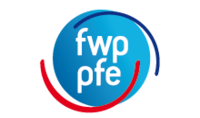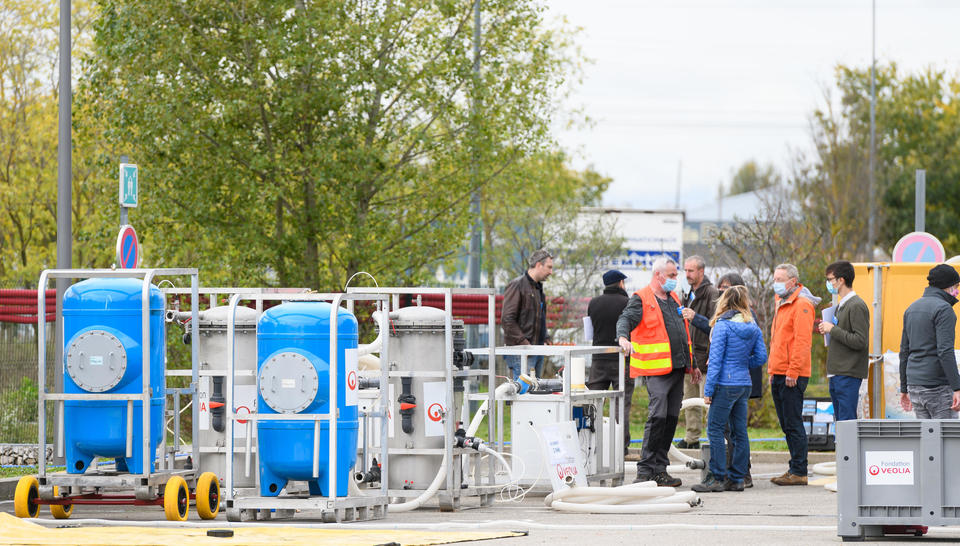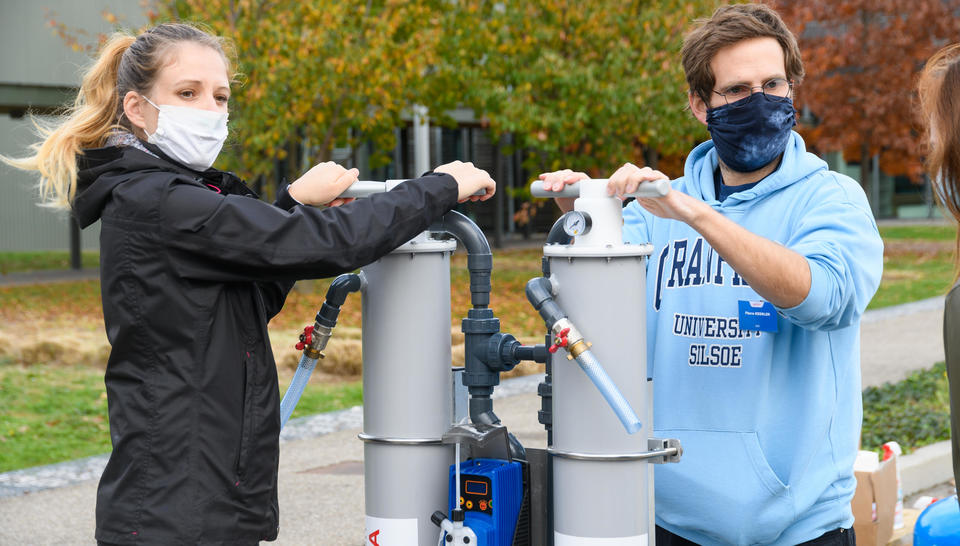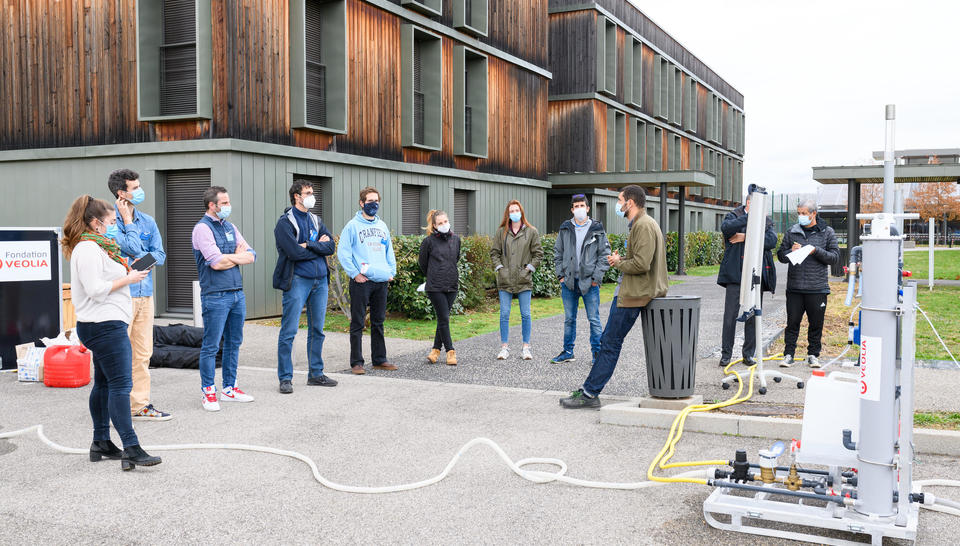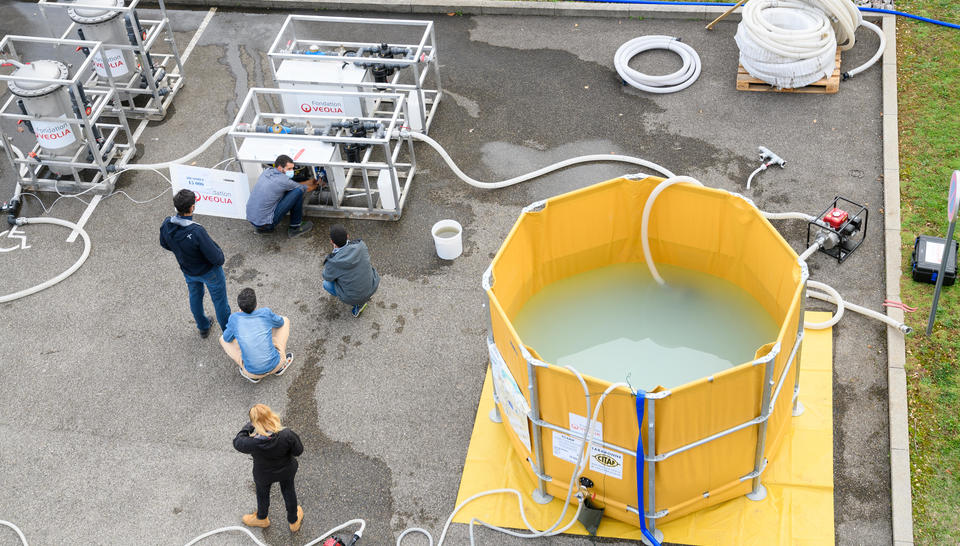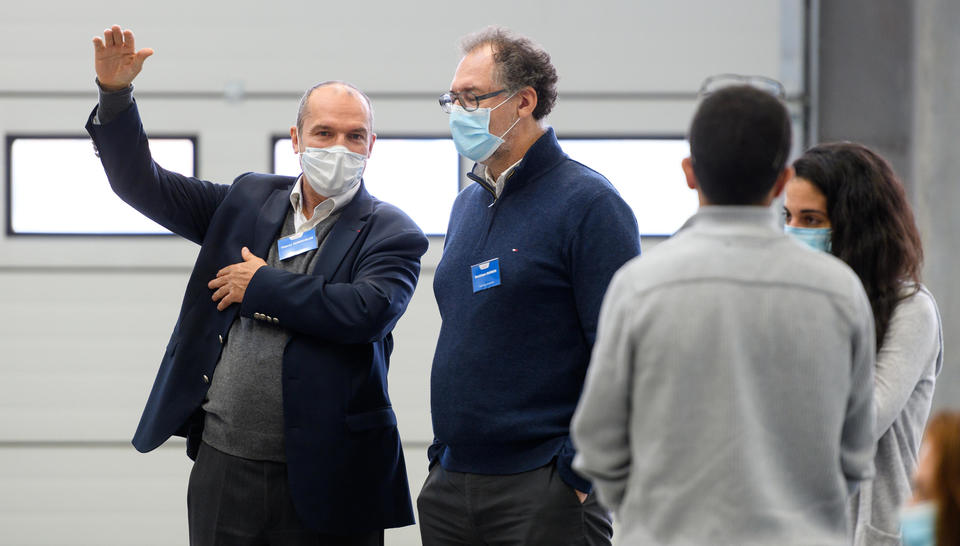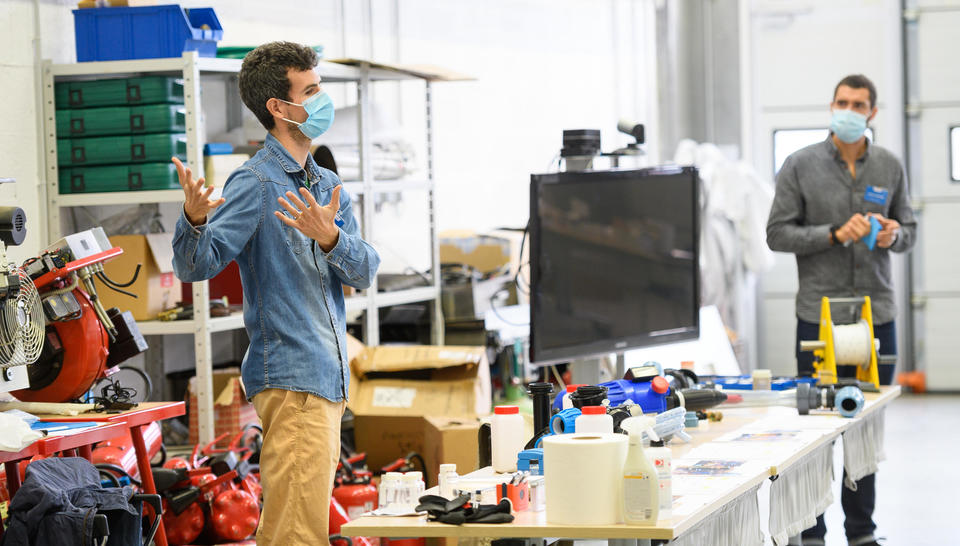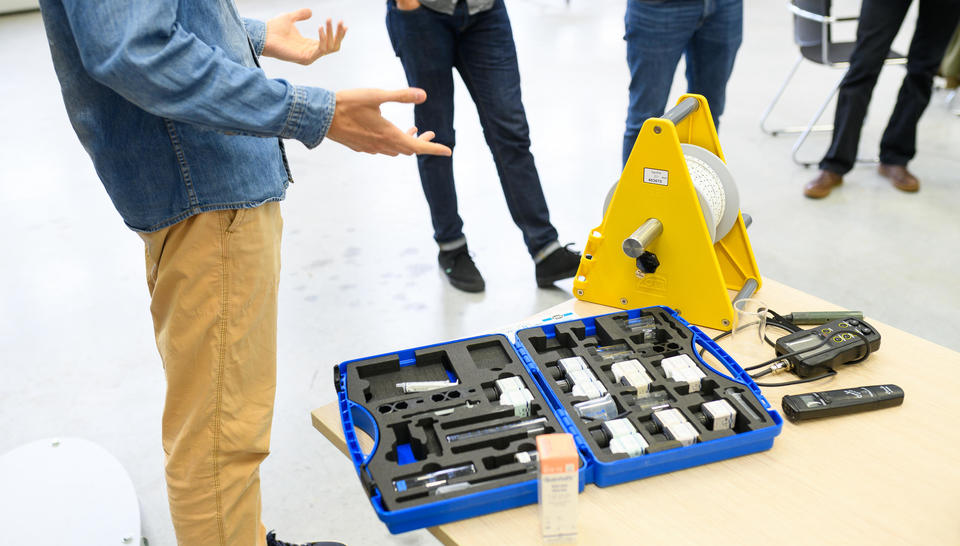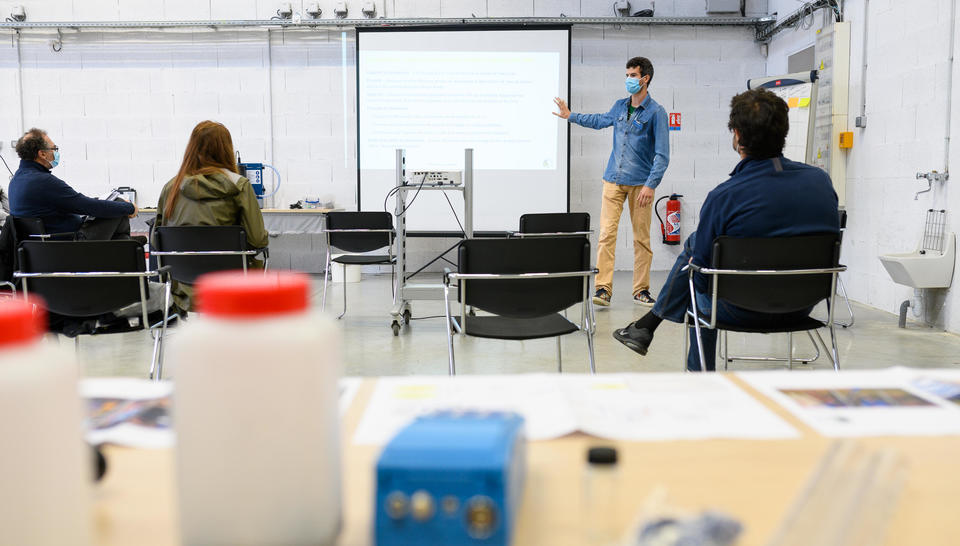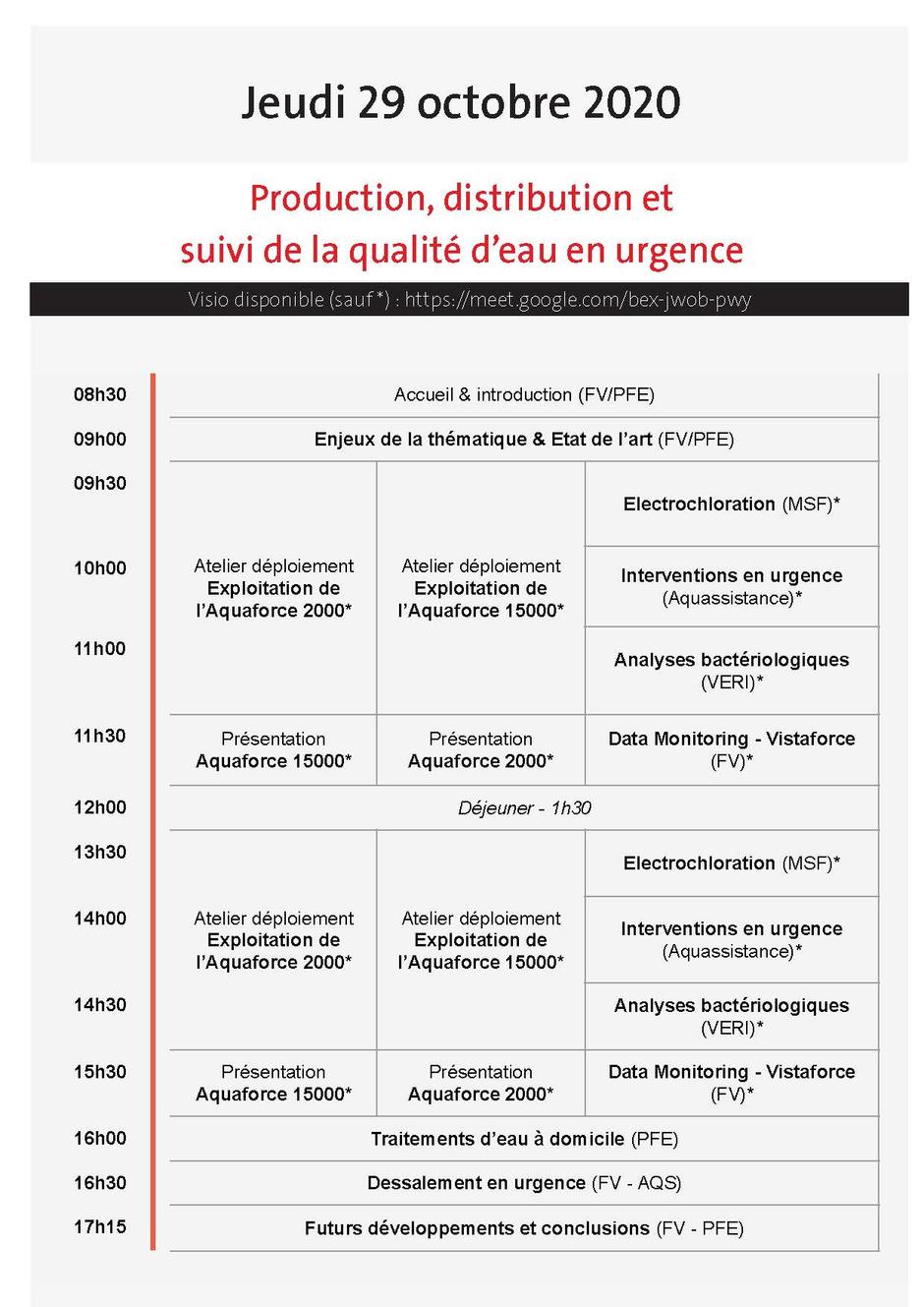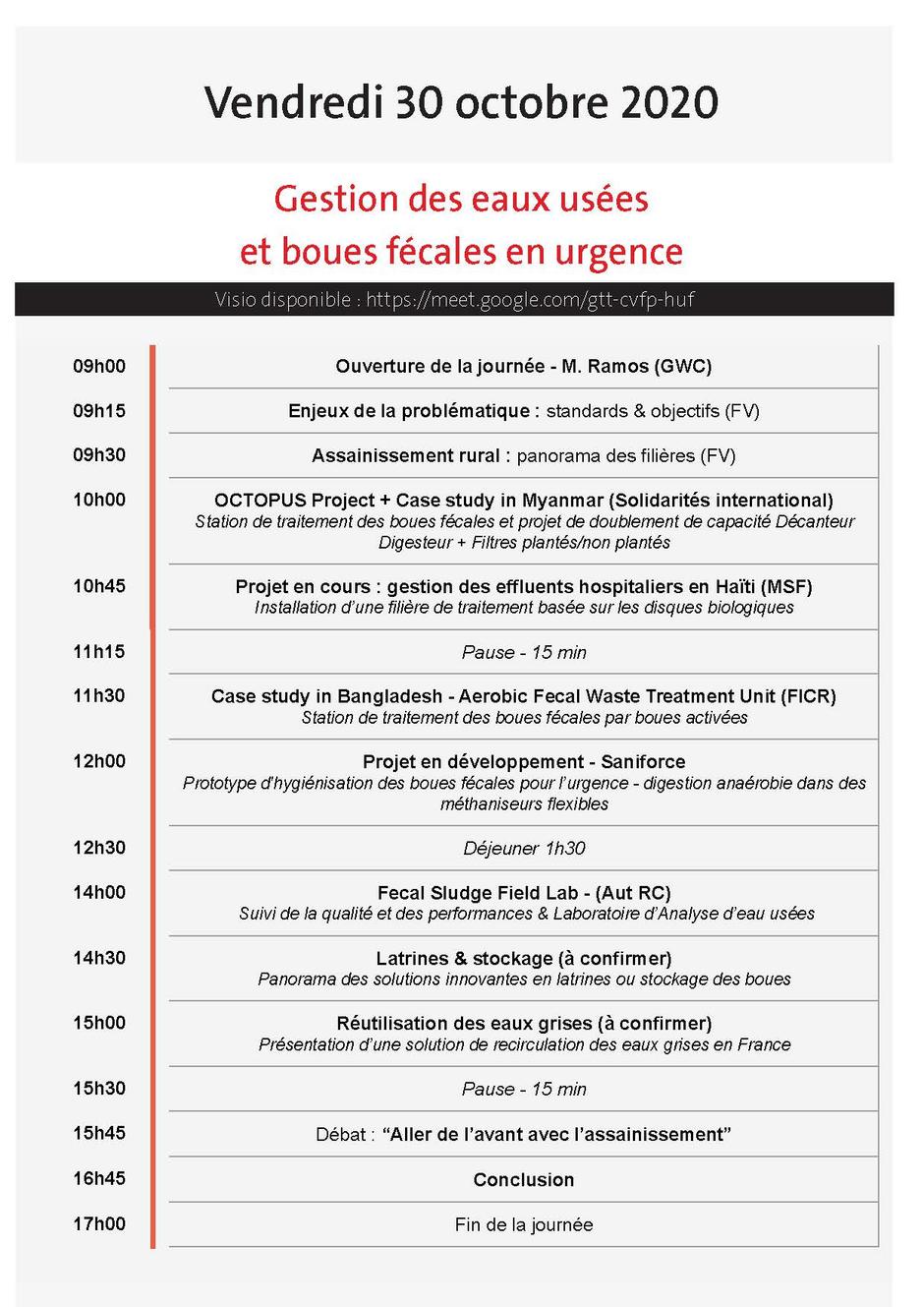At the end of October, at the invitation of French Water Partnership and the Veolia Foundation, experts took part in two days of discussions about access to water and sanitation in the context of humanitarian emergencies: the Humanitarian WASH Workshops.
At the end of October 2020, water and wastewater experts met in Lyon for two days to discuss crisis context-related water and wastewater technologies.
- Meetings to focus on access to drinking water and sanitation, two essential factors that ensure local populations, resources and the environment are protected.
- Two days to review the technical solutions, analyse the special mechanisms dedicated to emergency situations, and consider the equipment of tomorrow.
- Feedback from the field and practical workshops to discover and test water purification and wastewater and faecal sludge management systems.
---
WASH is the acronym for "Water, Sanitation and Hygiene", a sector also known as WatSan (for "Water and Sanitation") or, in French, "EAH" or "EHA" standing for "Eau, Assainissement et Hygiène".
A non-profit organization created in 2007 on World Water Day, the French Water Partnership is the benchmark platform for French public and private water players operating internationally. Its working group "WASH, Crises and Fragility in the PFE Partnership" is chaired by David Poinard, Director of Water Operations for Greater Lyon and a Veoliaforce volunteer.
THE PROGRAM
Introduction: the objectives, the agenda for the two days, the health protocol.
Production, distribution and monitoring water quality in emergencies
- Electrochlorination, by Médecins sans Frontières
- Bacteriological analyses, by Veolia Research & Innovation: evaluation of the reliability of several systems for measuring total coliforms and E.coli in the resource water for drinking water purification operations
- Aquaforce RO, the Veolia Foundation's desalination solution
- Aquassistance, humanitarian emergency missions
- Vistaforce Project, by the Veolia Foundation
Emergency wastewater and faecal sludge management
- Introduction - Sanitation in humanitarian contexts: challenges & objectives
- Rural wastewater treatment: an overview of the sectors, by Veolia
- Sittwee STS and other Octopus case studies, by Solidarités International
- Hospital effluent treatment: the example of Haiti, by Médecins sans Frontières
- IFRC Aerobic Faecal Waste Treatment Unit (AFWTU), by the International Federation of Red Cross and Red Crescent Societies (IFRC)
- Saniforce 500, an emergency wastewater treatment solution, by the Veolia Foundation
- Faecal Sludge Field Laboratory, by the Australian Red Cross
- Sanitation: elevated latrines
- Grey water reuse, by the BubbleBox team



